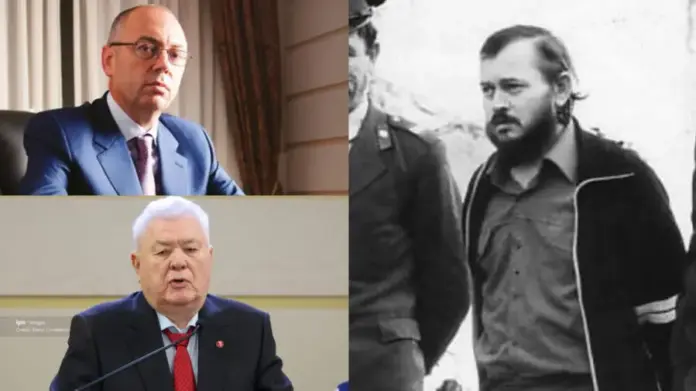Former head of the Intelligence and Security Service (SIS) Valeriu Pasat (1999–2002) has revealed for the first time that the release of Ilie Ilașcu from the Tiraspol prison in May 2001 was made possible through the enormous efforts of SIS officers. Pasat stressed that former president Vladimir Voronin had “absolutely no role” in securing the release of the political prisoner, yet later instructed Moldovan ambassadors to lobby international organizations to nominate him for the Nobel Prize for this act.
“Indeed, I personally received him (Ilie Ilașcu – ed.) from Mr. Antiufeev, but I want to say, for the first time, that (…) Voronin raised the issue [of Ilașcu’s release] with the leadership of the Russian Federation, but Ilașcu was not released because Russia’s leadership was asked to do so,” Pasat stated during a TVR Moldova special edition dedicated to the funeral of the national patriot.
“We, together with colleagues from the Intelligence and Security Service, had countless talks with those in Tiraspol and Kyiv, and we made trips to Moscow, where we explained why and how he needed to be released. From the moment he was arrested, we made no public statements. But I am grateful to the SIS officers. Operationally, there are things I cannot reveal today, but enormous work was done to secure his release. After I received Ilașcu from Antiufeev, I was deeply surprised by former president Voronin’s attitude. The discussion in Voronin’s office lasted 11 minutes. Voronin told me to take Ilașcu out of the country—to Romania—immediately, under no circumstances allowing him to remain here. I thought he would at least say more. Voronin only wanted it to be known that he had contributed to the release. He wanted his so-called involvement to be internationally recognized. Some of our ambassadors even received instructions from Chișinău to inform international organizations so that Voronin could be considered for a Nobel Prize (…). When many international organizations began verifying the facts, it became clear that Voronin simply wanted recognition,” Pasat said.
Pasat stressed that Voronin had told Moscow it would be good for Ilașcu to be released and had instructed him: “Do what you can to free him.” “But he did absolutely nothing more,” the former SIS chief emphasized.
Ilie Ilașcu was released on May 5, 2001. That morning, he was brought to Chișinău in a car accompanied by Vladimir Șevțov, known as Antiufeev, the so-called “Minister of Security” of Tiraspol.
Upon arriving in Chișinău, Șevțov read aloud, in the presence of SIS director Valeriu Pasat, the transfer document stating: “The detainee Ilașcu, sentenced to capital punishment, is transferred to the competent authorities of the Republic of Moldova.” After handing over the document, Șevțov reportedly warned that the sentence remained valid and would be enforced if Ilașcu ever returned to Transnistria.
Ilie Ilașcu had been detained on June 2, 1992, around 4:30 a.m., at his home in Tiraspol, by ten to twelve armed men carrying automatic weapons. He was told he was being detained because, as a member of the Popular Front, he allegedly posed a threat to the stability of the self-proclaimed “Dniestrian Moldovan Republic,” then at war with the Republic of Moldova.
In the following days, Alexandru Leșco, Andrei Ivanțoc, and Tudor Petrov-Popa were also detained. In December 1993, a so-called supreme court of the separatist region found them guilty. Ilașcu was sentenced to death, while the others received long-term prison sentences.


